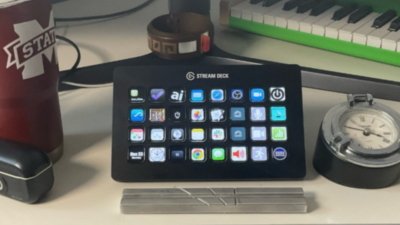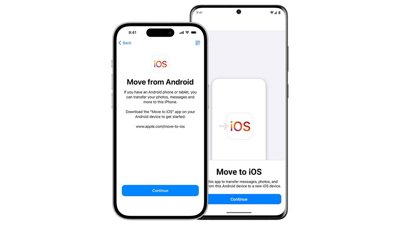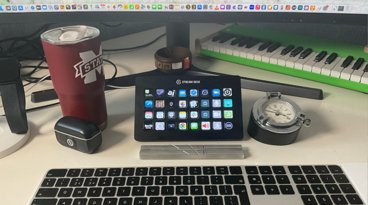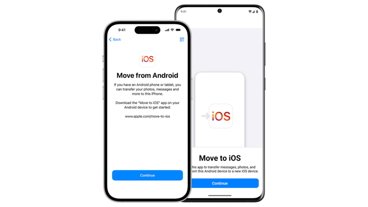Skyfire CEO Jeff Glueck notified interested customers on the company's blog Friday.
"We are going to open batches of downloads for new users over the coming days," Glueck wrote. "The first batch will be in a few minutes on the Apple App Store. It will be first come, first serve."
The post advises users experiencing initial congestion after downloading the app to "try again an hour later" after the flood of a new batch of users has passed. New batches will be announced by the company on Twitter and Facebook, with batches expected to arrive more frequently over the coming days.
On Tuesday, news that Apple had approved the Skyfire for iPhone app spread so quickly that, when Skyfire was released on Wednesday, the company was forced to pull the app just 5 hours. After the app mysteriously disappeared from the App Store, users expressed concern that Apple had removed it, but Skyfire clarified the situation with a post to the company's blog.
"We are effectively ‘sold out’ and will temporarily not accept new purchases from the App Store," read the post.
Skyfire for iOS, which is actually "a tool that works on top of mobile Safari," converts Flash videos on the web to HTML5 on its own servers, then sends the video to its browser app. The app does not work with the TV streaming site Hulu or Flash games, which require interactivity.
The Skyfire Flash workaround could be a boon for iOS users, though a recent study showed that HTML5 adoption has increased, reducing the need for an iOS-based Flash solution. According to MeFeedia, as of October, 54 percent of H.264 video on the web is available for HTML5 playback, compared to just 10 percent availability in January.
Starting with the MacBook Air, Apple began shipping its Macs without Adobe's Flash plugin installed, ostensibly to ensure that users get "the most up to date and secure version," which they will have to download from Adobe directly. After Ars Technica's MacBook air battery tests with and without Flash installed revealed a 2 hour drop in battery life when surfing the web with Flash, speculation arose that battery performance was also a factor in Apple's decision to ship the MacBook Air without the Flash plugin installed.
Apple and Adobe have been at odds with each other this year, with the company's CEOs engaging in a heated war of words. Apple CEO Steve Jobs published a letter blaming Flash as the No. 1 cause of crashes on the Mac. Adobe CEO Shantanu Narayen responded that the fault lies with "the Apple operating system."
 Josh Ong
Josh Ong






-m.jpg)






 Christine McKee
Christine McKee
 William Gallagher
William Gallagher
 Amber Neely
Amber Neely

 Andrew O'Hara
Andrew O'Hara

 Sponsored Content
Sponsored Content
 Charles Martin
Charles Martin








24 Comments
The app works fine, but most sites that I visit are iOS friendly. Flash isn't a big deal to me but it's nice to have an app that let's me watch some flash videos. Especially when I view live videos on Ustream.
The Skyfire Flash workaround could be a boon for iOS users, though a recent study showed that HTML5 adoption has increased, reducing the need for an iOS-based Flash solution. According to MeFeedia, as of October, 54 percent of H.264 video on the web is available for HTML5 playback, compared to just 10 percent availability in January.
I don't know why anyone cares about Flash video at this point. I finally started converting my videos, all 16 of them, to x264. I have a nice html5 player which I integrated into my dynamic Flash video page. It sniffs the browser and the plugins and automatically serves up the html5 version if the browser can play it. I have yet to convert my videos to ogg but I plan to for my FF users. Handbrake does a pretty good job of converting flv to mp4. A couple of them crashed HB but I have the original mov files so I can go get those for the few that HB can't convert.
From my tests with all things being equal HTML uses 19% CPU and the identical video in Flash uses 38%.
As soon as I saw they approved it, after I thought "No effing way" I thought, "What's the point?"
Like the poster above, a lot of websites I visit are iOS friendly. It seems that folks know that more and more people will be browsing sites on tiny devices rather than computers. Flash is fine, but why not open it up for everyone without an extra plug in? Apple didn't kill Flash, HTML5 killed Flash. At this point, Skyfire is just a high point on the Titanic...
I don't know why anyone cares about Flash video at this point. I finally started converting my videos, all 16 of them, to x264. I have a nice html5 player which I integrated into my dynamic Flash video page. It sniffs the browser and the plugins and automatically serves up the html5 version if the browser can play it. I have yet to convert my videos to ogg but I plan to for my FF users. Handbrake does a pretty good job of converting flv to mp4. A couple of them crashed HB but I have the original mov files so I can go get those for the few that HB can't convert.
From my tests with all things being equal HTML uses 19% CPU and the identical video in Flash uses 38%.
FfmpegX works great, but it does require a little more effort to setup the first time. I?ve used this in the past to convert FLV to whatever.
FfmpegX works great, but it does require a little more effort to setup the first time. I?ve used this in the past to convert FLV to whatever.
That is what I would normally use but I was converting a couple DVDs and I thought - Does HB convert flv? So I went to their about page and it said it converts from all kinds of sources so I tried it and was pleasantly surprised. It was really fast and convenient so I used that method. The hard part is getting the JS code working correctly to play it with the video controls.